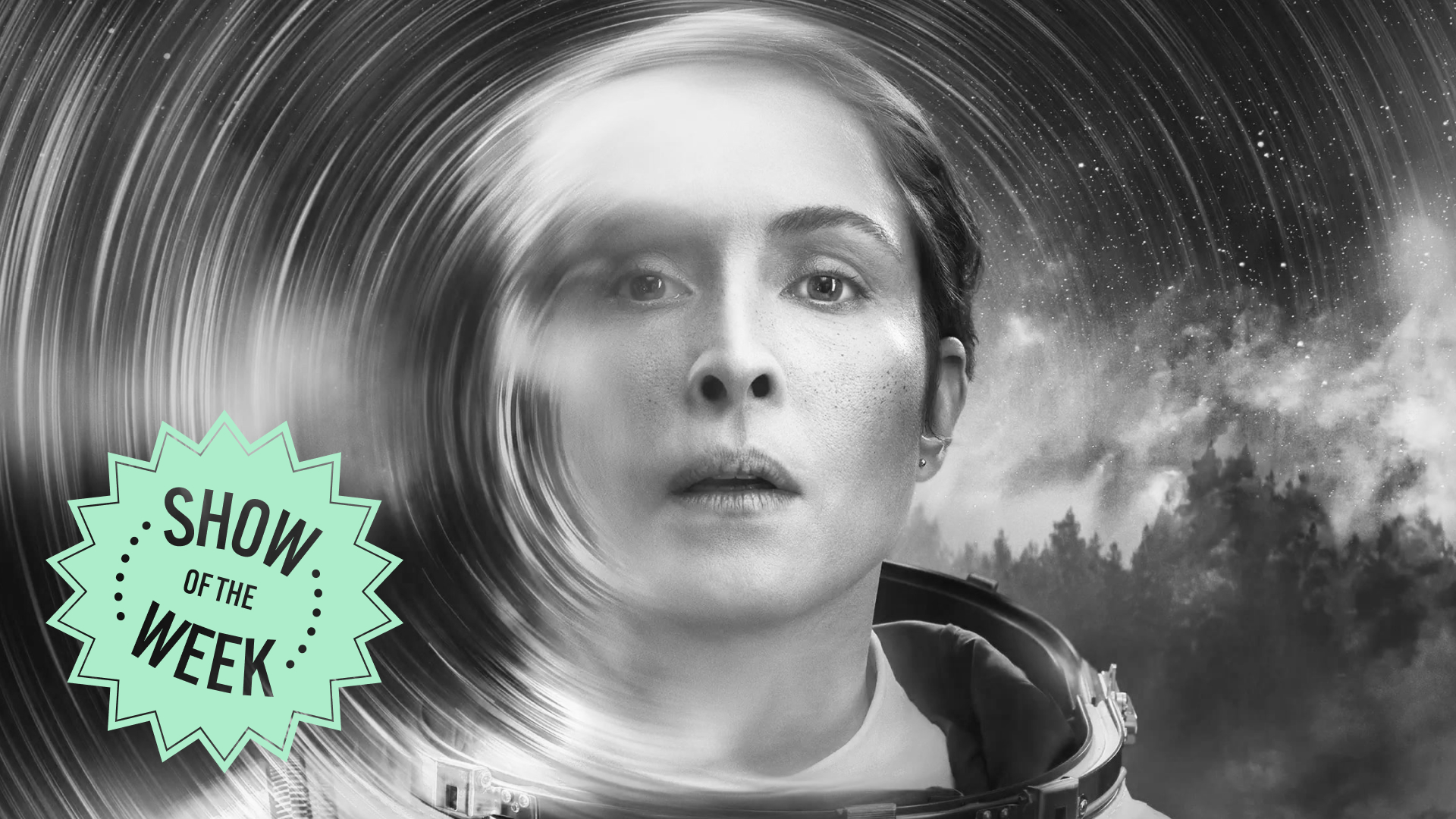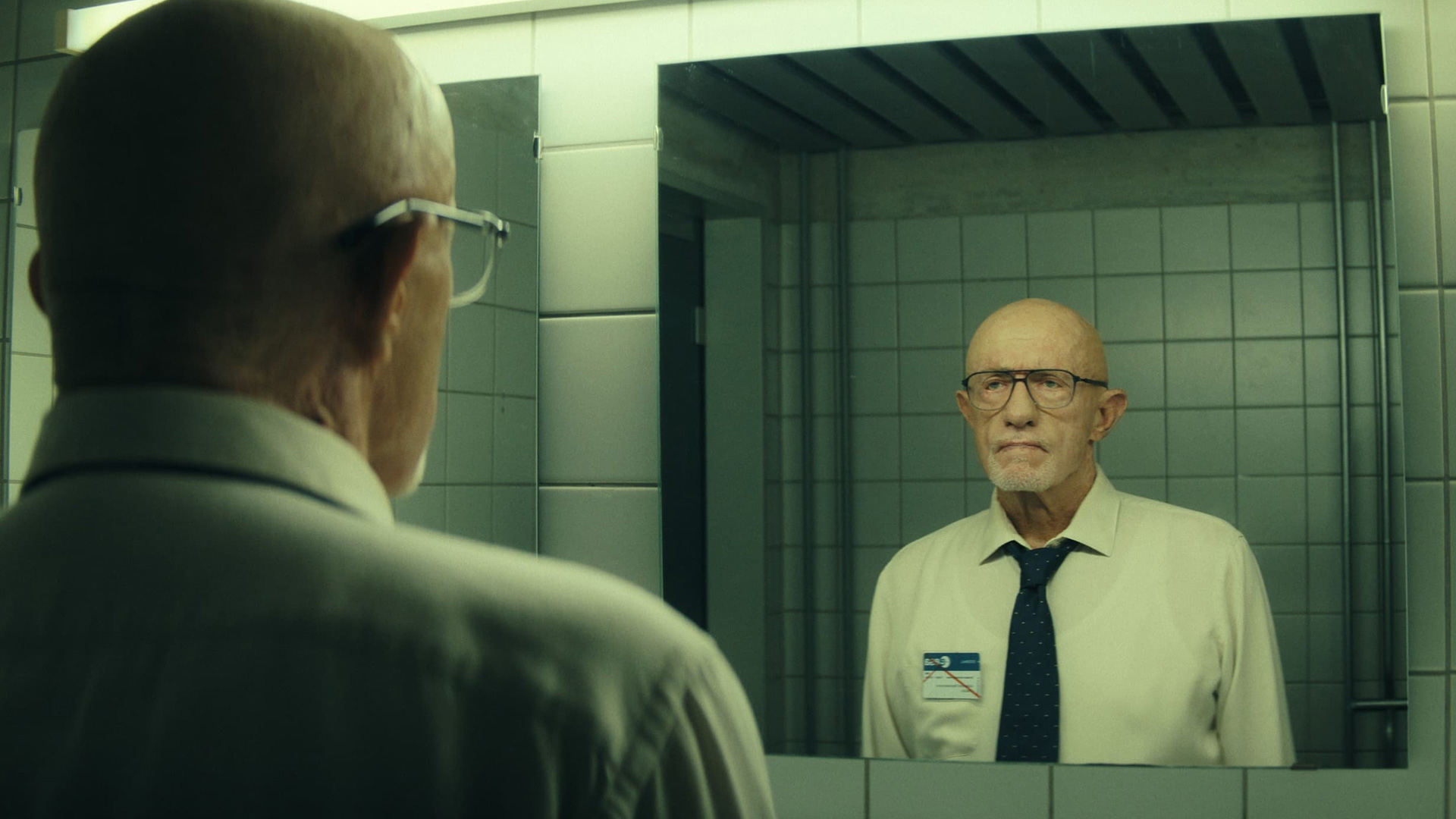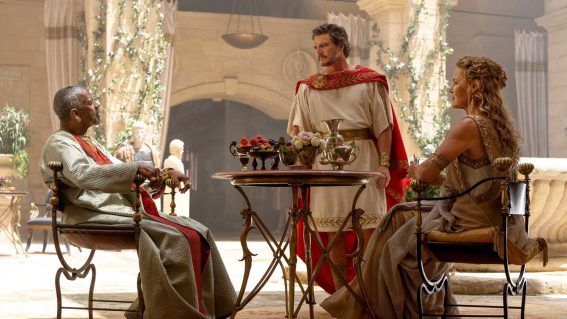Puzzle box series Constellation trusts its audience to be smart and patient

Clarisse Loughrey’s Show of the Week column, published every Friday, spotlights a new show to watch or skip. This week: Constellation.
No one seems all that interested in making the next Lost these days. Perhaps there were too many disappointments and, now, the allure has gone. Netflix’s 1899, for a while, seemed promising – until it was cancelled. But Apple TV+’s new sci-fi series, Constellation, has pushed the puzzle box genre in a promising new direction. It’s the story of an astronaut, Jo Ericsson (Noomi Rapace), who narrowly escapes catastrophe aboard the International Space Station, only to return to Earth and find her reality altered.
The changes are subtle. Suddenly, her beloved daughter Alice (twins Davina and Rosie Coleman) no longer converses with her in her native Swedish. Her marriage to Magnus (James D’Arcy) is threatened by accusations she has no memory of. And the family car is now an entirely different shade. Jo is certain about what caused the ISS disaster, but her superiors, including the frosty and evasive Irene Lysenko (Barbara Sukowa), seem intent on dismissing her claims as a stress-induced hallucination.
Constellation, which arrives courtesy of Doctor Who’s Peter Harness, circles around several narrative solutions during its eight-episode span. It could be symptoms of PTSD. There are whispers of conspiracy. And, of course, there’s always the possibility that the hand of God, fate, or quantum physics is at work. Yet, unlike Lost and its kin, Constellation rarely parades its twists around with any sense of ceremony. It’s a far more subtle, grounded piece of work, that trusts its audience to be smart and patient – especially with its episodes dropping on a weekly basis, following a three-episode premiere designed to establish its central mystery.
Here, ideas are cosmic, but emotions are kept trapped within cocoon-like space shuttles, or held fast between a mother and daughter, separated for so long that they’ve started to fear something between them’s been lost. A major side plot involves Better Call Saul’s Jonathan Banks in the role of Henry Calderra, a former astronaut and NASA scientist, whose dedicated search for a new state of matter seems to trump even his care for human life. It propels the story, and Banks is compelling in his character’s amorality.

But, dutifully, Constellation returns always to Jo and Alice, and specifically to a sequence of the pair, alone in a snowstorm, losing and rediscovering each other with a strange, hallucinatory frequency. The series takes its time in revealing the context of this incident. It works, for the most part, although Harness’s trust in his audience is occasionally pushed too far, and the compellingly elusive turns into the frustratingly so.
Rapace, thankfully, is a grounding presence. She’s able to pull all these threads and tie them back to the same, recognisable impulses of love, fear, and desire. It’s similar to what she achieved in Prometheus – the fractured clarity of a woman who’s trained her entire life to navigate the stars, now asked to face the one thing she never could have prepared for. And, while Constellation’s secrets are welcome ones, there’s also an unexpected sweetness to a story that uses such vast ideas to, instead, soothe the anguish of not feeling in control of one’s destiny. It’s a puzzle box that seeks to offer more than simply the pleasure of being solved.


















